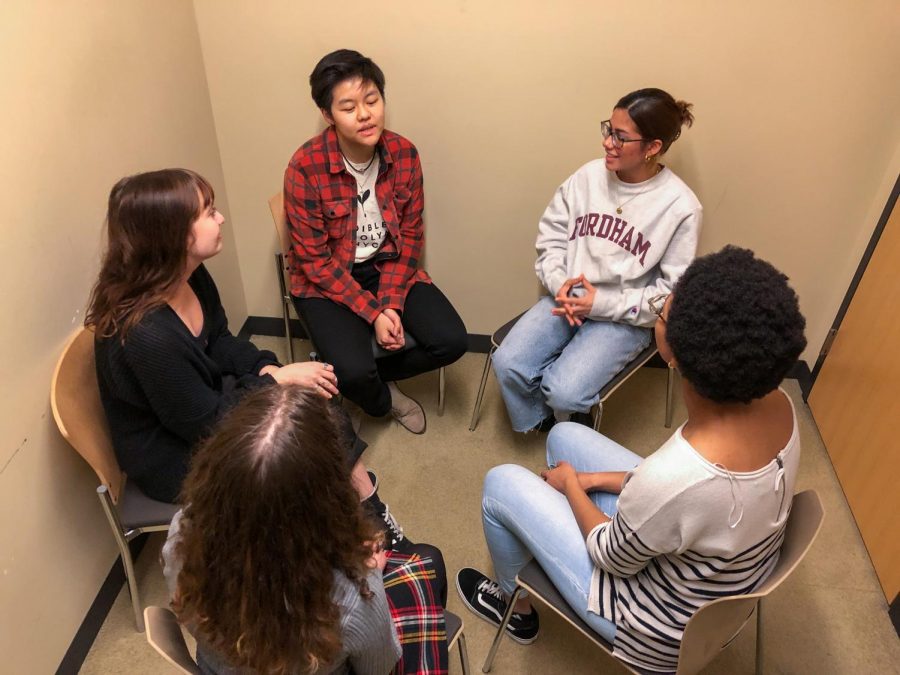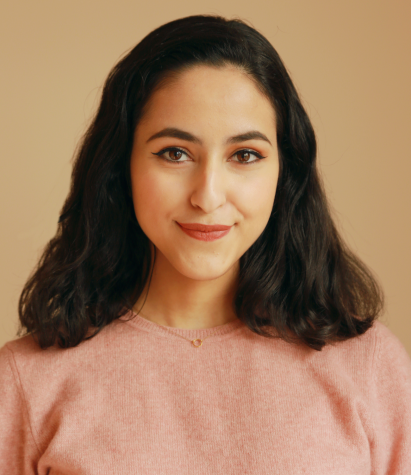CPS Promises Free and Long-Term Services in Group Therapy
Students can now meet in small groups to share their experiences and get guidance from facilitators.
February 19, 2020
For most students around campus, knowledge of Fordham’s Counseling and Psychological Services (CPS) has always centered around the 10 free individual sessions offered to students before they have to start paying for counseling. Although this limit may serve as a deterrent for some students, given the additional financial cost, CPS offers a free and long-term alternative: group therapy.
Usually composed of five to six students, each group focuses on a different subject, including body image, being a woman of color, relationships, disabilities, or cultural differences for international students. The two most recent additions are the body image and cultural difference groups; the latter takes on a slightly atypical structure, as students meet weekly to discuss food-related adjustments while sampling food from various countries.
Yael Uness, associate director and coordinator of counseling at CPS, co-runs five of the seven groups and has found the two relationship groups and the women of color group to be the most successful in terms of turnout and personal growth. She believes the relationship groups act as “microcosm(s) of social interactions,” as opposed to the more individual growth that characterizes one-on-one therapy.
“There have been a lot of discussions about difficulty connecting with people beyond the surface level, whether it be because we live in New York City or because of social media,” Uness said. “But in our groups, it feels like a true connection is formed. People feel empowered both by providing feedback to others and grow by receiving feedback from the other group members and facilitators.”
Although Uness is pleased with the current performance of the groups, she feels that there is still room for improvement. Other than the continual goal of higher enrollment, she also mentioned the need for larger group counseling rooms.
While Uness knows that many students turn away from group therapy because being vulnerable around other students sounds intimidating, the students who chose to participate almost unanimously agree that it had been a beneficial experience.
“I wish people would trust me about how great the group experience can be when they first hear about it. I think there can be a huge barrier in sitting among a group full of people you don’t know and virtually every person says ‘this is not for me’ at first,” Uness said. “But when they try it, they realize that maybe this is for them. The long-term nature of group therapy is really priceless.”
Anne Wang, Gabelli School of Business at Lincoln Center ’22, was unaware that CPS provides free and long-term group therapy for students. However, after learning more about the groups offered, she was convinced that more students should take advantage of this service.
“I think a lot of students hesitate to attend group therapy because of the negative stigma around seeking help, but this sounds like a great opportunity. Having open and honest conversations with students from different backgrounds could be incredibly eye-opening and positively impact your life,” she said.
For the rest of the 2019-20 academic year, there will be two groups meeting Mondays, Tuesdays and Wednesdays in 140W Room G02. The hour-long sessions take place at various times between 10 a.m. and 8 p.m. and are led by staff facilitators.
Based on data collected from surveys conducted by CPS, students reported that the facilitators were “understanding and helpful,” and enjoyed the autonomy of teaching-based groups in which members took the lead in the conversation while facilitators directed conversation. Positive responses were seen across the board for all sessions and students genuinely enjoyed the experience.













